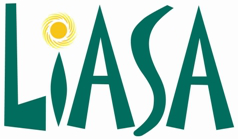Speaker
Ms
Una Langeni
(LIASA)
Description
The purpose of this paper is to analyze the detailed content and to ascertain whether tertiary institutions of higher learning (IHL) have knowledge management process in place using knowledge management audit as a tool. This paper defines knowledge management audit, (KM-audit) as the auditing process of creating, acquiring, retaining, distributing, transferring, sharing, and re-using the institutional knowledge of an organization, i.e. it refers to how the knowledge is managed in the organization. Moreover, KM-audit also includes an examination of the organization's strategy; leadership; collaborative, learning culture; staff participation in team work; and technology infrastructure in its various knowledge processes (Chong and Lee, 2005). In other words, KM-audit is an organic synthesis of traditional audit theory, methodology and knowledge management practice. KM-audit implements the audit idea in the enterprise's knowledge management and audits how to carry on knowledge management in its operational process. According to Budd (1998) Universities are concerned with the conservation of knowledge and ideas; teaching, publications, extensions and services as well as interpretation. Research is also a conservation of knowledge which is practiced in the (IHL) thus it helps in determining what they know and do not know. This paper emphasizes on culture of sharing and delivering knowledge from faculties to students and staff. A question on how lecturers generated knowledge was asked and the response was (“I am a member of industry associations, furthers studies with a PhD, get industry certification, read many journals and general articles, do internet research”). Additionally, the respondents were asked as to how knowledge is generated in their departments. Respondents revealed that (“we invite guest speakers to address students, liaise with the industry, conference attendance and presentations”). Respondents were asked as to how they transfer knowledge generated and gained to other departments or colleagues. (“We transfer the knowledge gained and generated through meetings, workshops, presentations, e-mails and informal discussions with colleagues”.)
Primary author
Ms
Una Langeni
(LIASA)
Co-author
Mr
Petros Dlamini
(LIASA)

